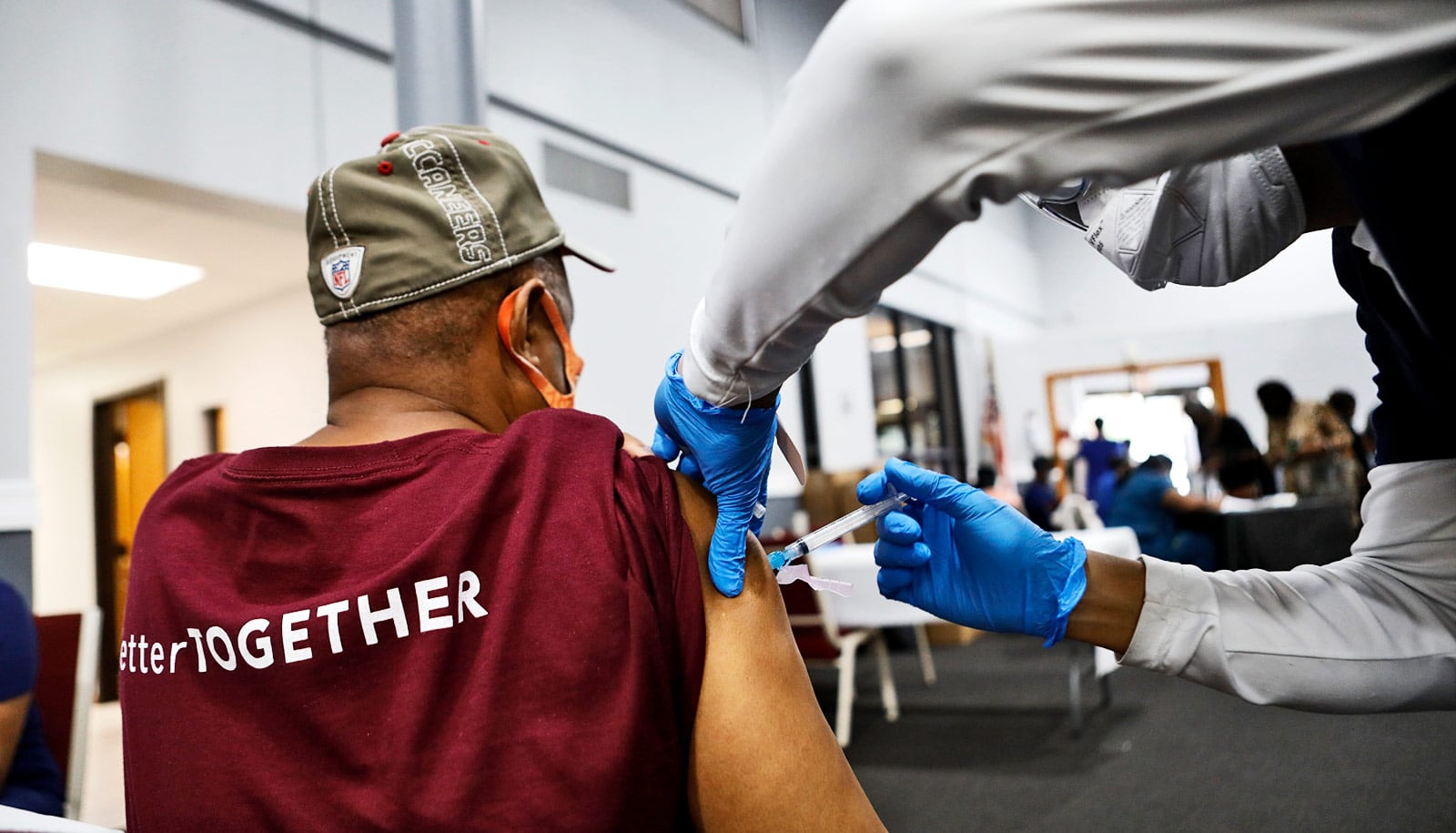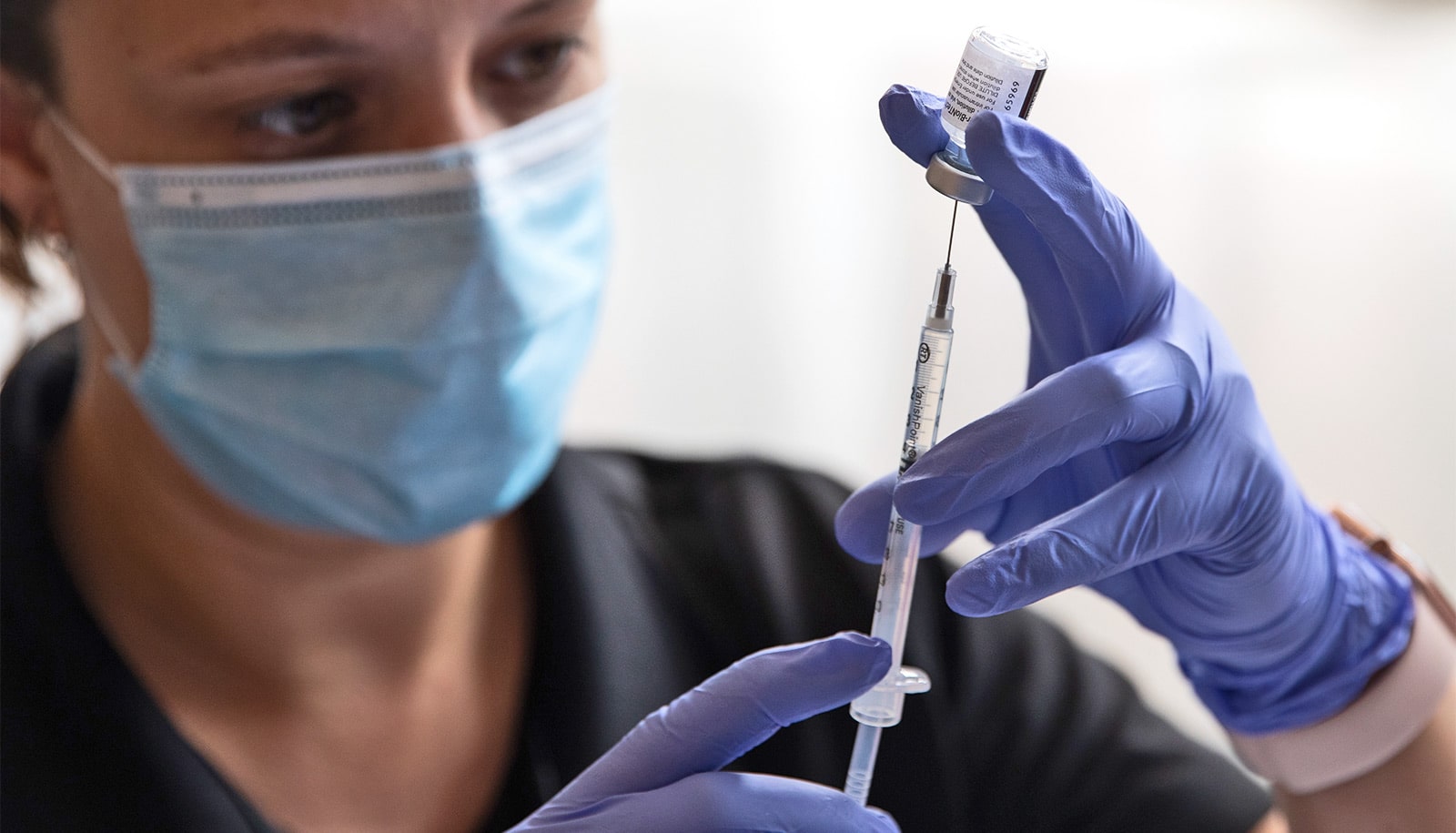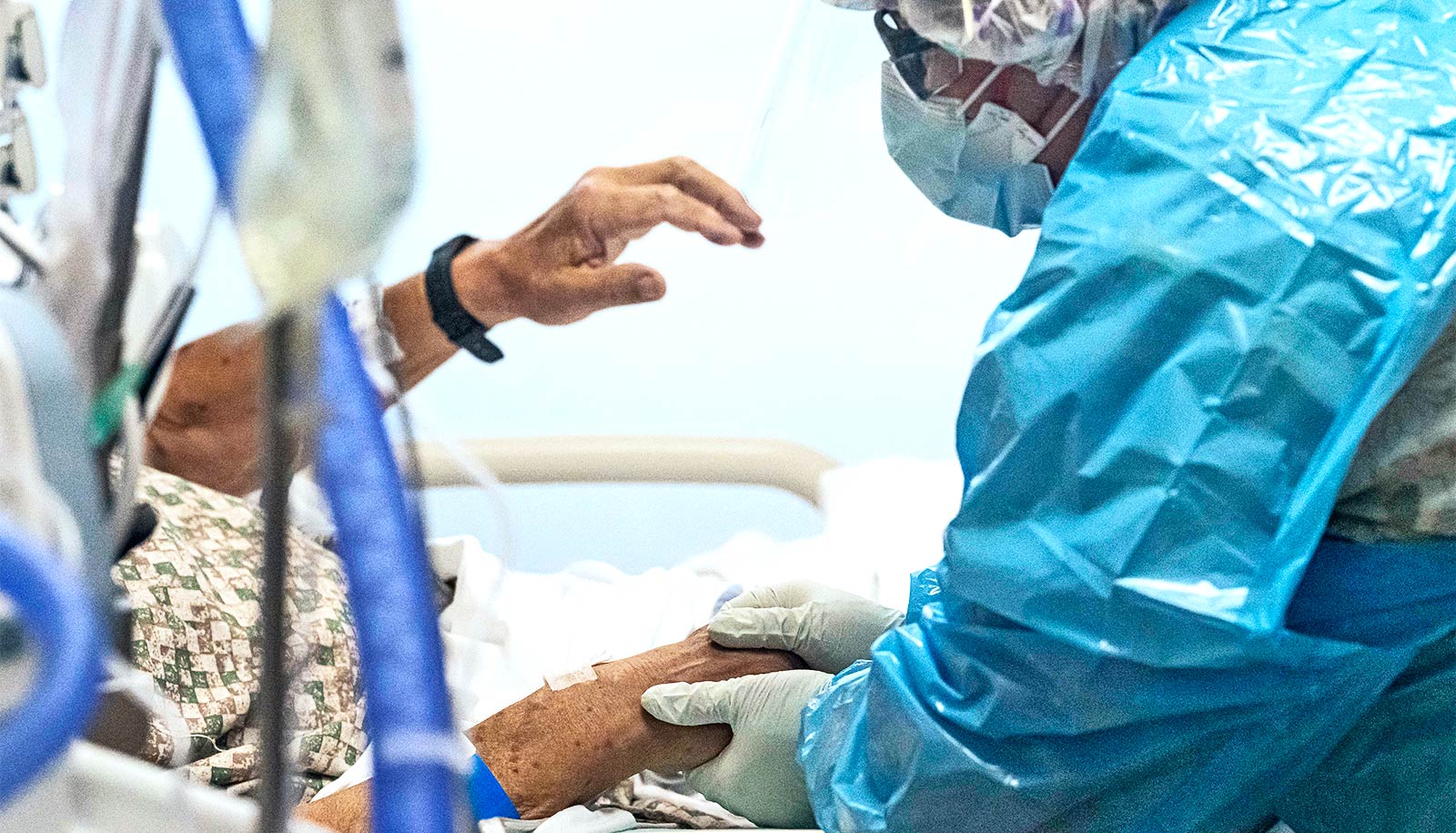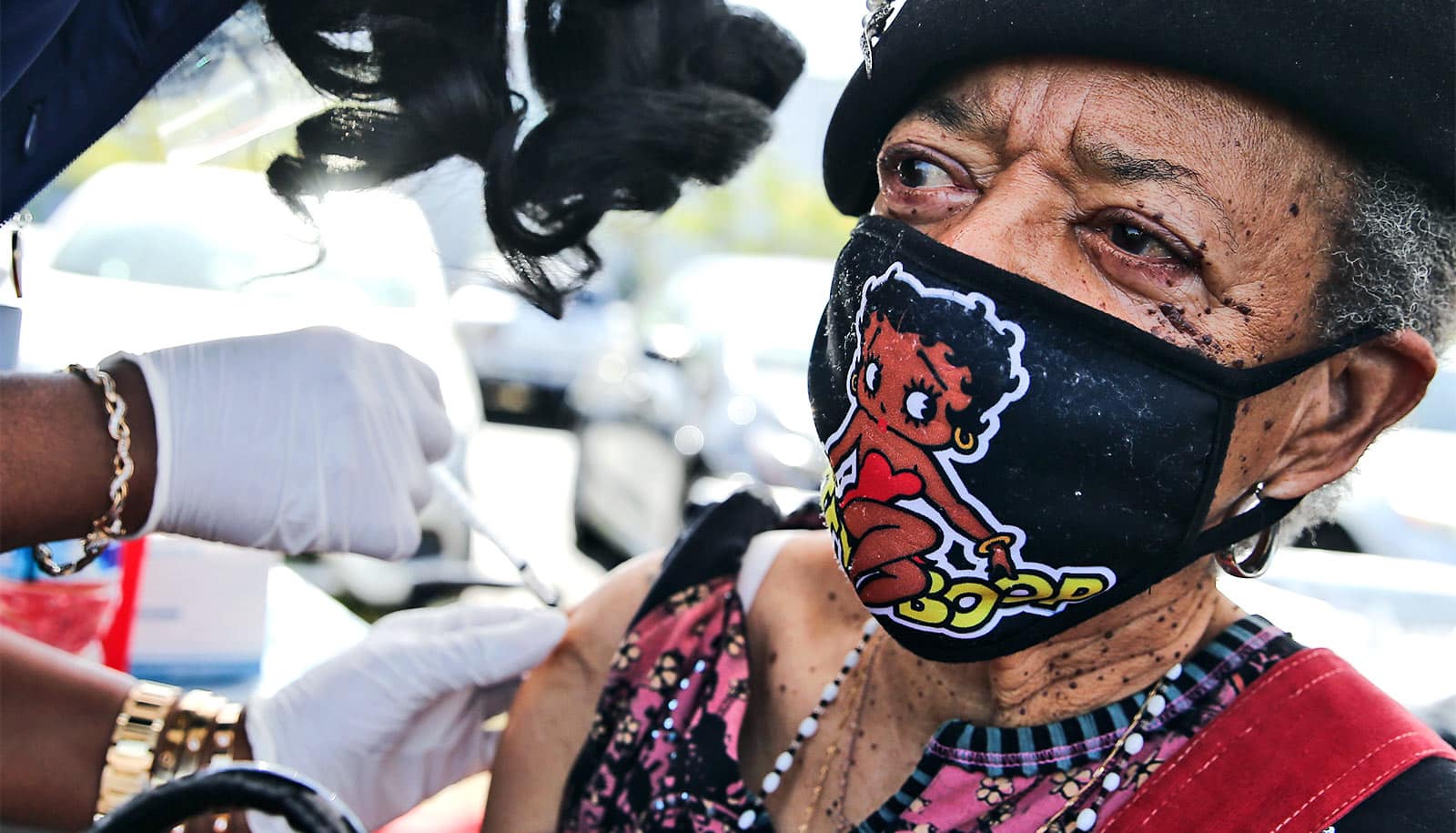COVID-19 booster shots are essential for maintaining long-term immunity against infection, particularly among older adults, a new study shows.
The findings in Clinical Infectious Diseases directly support the CDC vaccination guidelines recommending COVID-19 boosters, the researchers say.
A previous study documented a significant decline in protective antibody response among all vaccine recipients six months after an initial two-dose series of mRNA vaccines, particularly in older adults whose immune systems weaken with age and respond less efficiently to viral and bacterial infections.
These previous studies also showed a sharper decline in immune response in men compared with women in adults over 74 years.
For the new study, investigators tested COVID-19 antibody levels in blood samples from more than 80 adults ages 75–98 who had two initial doses of the mRNA vaccines made by either Pfizer or Moderna and no known history of COVID infection.
As a comparison group, researchers also tested the blood of 84 adults under 75 years old with the same vaccination and infection history.
When blood samples were again taken and tested 14 to 30 days after a booster shot, antibody levels for older adults matched those in the younger group. A third dose also eliminated disparities between males and females within the same age group.
“The data support the CDC guidelines for COVID-19 vaccination and affirm that the vaccine is initially able to mount a good antibody response,” says Sean Leng, a professor of medicine who specializes in geriatric medicine at the Johns Hopkins University School of Medicine.
But, he adds, older people need to be especially encouraged to get the vaccine and boosters to keep them protected from breakthrough infections as immunity wanes.
The study also underscores the importance of continued research on factors that may affect immunity, such as type of vaccine, age, sex, and frailty.
Additional coauthors are from Johns Hopkins and Rensselaer Polytechnic Institute.
Funding for the work came from the National Institutes of Health, the National Cancer Institute, the National Institute of Allergy and Infectious Diseases, Johns Hopkins Center of Excellence in Influenza Research and Response, the Centers for Disease Control and Prevention, the Irma and Paul Milstein Program for Senior Health, the Milstein Medical Asian American Partnership Foundation, and the Howard and Abby Milstein Foundation, Johns Hopkins University, and the Fonds de Recherche du Québec–Santé.
Source: Kristen Crocker for Johns Hopkins University



